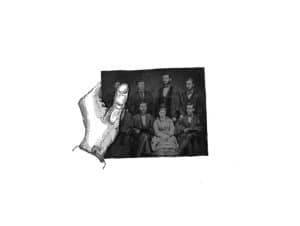Learning how to empathize with others is a key aspect of studying history
The world is in trouble. Corporations strip-mine the environment, gather record profits, and then underpay their workers. Powerful demagogues use dog-whistle rhetoric to divide us along political, racial, and religious lines. Most pervasively, amidst all this violence, uncertainty, and hatred, we feel more disconnected from each other and ourselves than ever before. This disconnection lies at the root of many of the world’s most persistent ills. An inability to connect with other people – in short, a lack of empathy – is at the root of the greed, hatred, and fear plaguing our world. It is the opinion of your correspondent that the study of history can alleviate, even solve, these problems.
When the average reader thinks of academic history they imagine dusty old tomes being pored over by dusty old men in the hopes of discovering something mildly novel, and they would not be entirely wrong. But the study of history is, at its heart, a human act and one that can teach us to be more human. It forces us to reach across great gulfs of time and distance and tell stories about people with whom we share nothing but our humanity. Our subjects seem to have little in common with us. They were men and women who lived 50, 100, or 500 years ago. Men and women who lived in circumstances utterly alien to our own. Men and women who understood themselves in ways entirely different from our own. Yet it is the impossible task of the historian to reach out to these citizens of the past and tell their stories with compassion, creativity, and accuracy.
The best histories, and the best historians, understand their subjects to be essentially and inescapably human. That is the starting point for their analysis, and enriches every fact, date, and narrative. In short, good history requires empathy, and without it our stories become dry and useless recitations of events long past.

History can save the world, not by teaching us to avoid the mistakes of the past, but because it can teach the same empathy that it requires of us. The ability to empathize with a person who lived in the depths of history makes it immeasurably easier to empathize with someone who lives on the other side of a river, or with a different skin colour, or by a different faith. If we can form a human connection with a Han dynasty peasant or a medieval German monk, then we cannot help but develop the same connection with someone today whose politics, origins, and values appear entirely divorced from ours. The reading, and especially writing, of good history demands that we become better at connecting with each other and provides us the ready means. In a world where we obsessively divide ourselves by political alignment, racial and national origin, values, and class, there is an intrinsic value to being able to cut through to the humanness at the core of all of us. If empathy can salve so many of the world’s ills, bind up so many of its wounds, and right so many of the its wrongs, and if the study of history can improve our ability to connect with each other, then we owe it to ourselves and our children to embark with joyful hearts and ready minds into the past.





